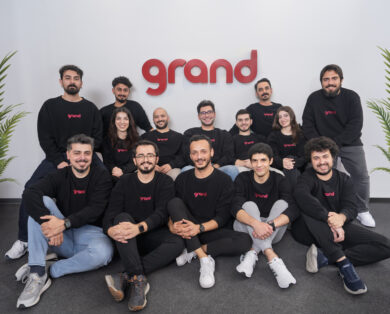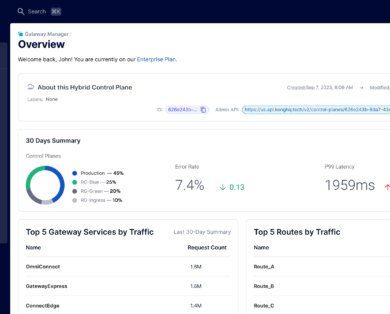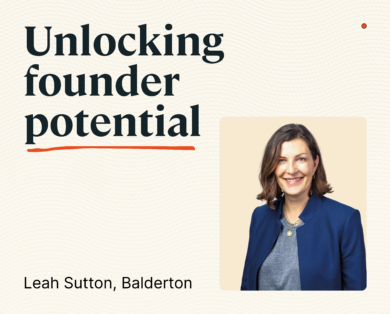- Portfolio News
- 04 March, 2025

Last month, Balderton Capital and the Milken Institute brought together founders and investors to discuss the role of fintechs in the mental wellbeing space today.
Balderton partner Rob Moffat introduced the evening by framing the potential impact of the fintech community. Across both Europe and the US, almost a third of adults are reported to be in financially vulnerable situations, which in turn bear significant knock-on effects on mental wellbeing.
The scale of this challenge is vast, but as technology advances, fintechs can – and will – play a leading role in solving this crisis. We’ve long been passionate about this opportunity at Balderton, and over the years we’ve backed Europe’s most-disruptive fintechs including Revolut, Cleo, Wagestream, Zero, GoCardless, Nutmeg, Lendable, and Flywire.
For the panel discussion, Balderton partner Rana Yared was joined onstage with:
- Barney Hussey-Yeo, founder and CEO of Cleo, an AI powered platform offering personalised advice and tailored financial tools.
- Emily Trant, head of impact and inclusion at Wagestream, a financial wellbeing app giving workers access to fair financial services built around their pay.
- Aaron Schumm, founder and CEO of Vestwell, financial infrastructure powering a flexible, cost-effective, modern solution to retirement and other tax advantaged savings in the US.
Rana began with a sobering statistic – that today 63% of Americans could not withstand an emergency of $500, and the equivalent figure in the UK last year is £300. Indeed American workers are reporting unprecedented levels of mental stress specifically attributed to financial stress. These stats are sobering, but not entirely surprising. High inflation, rising debt from rising interest rates, and, frankly, the deliberate exit of some mainstream financial services providers at a time when they are most-needed, have put enormous financial, and mental, pressure on consumers across the US and UK.
But where traditional providers fail, it creates opportunities for fintechs to capture the attention of users, and put them on a different financial course that can be completely life-altering. The three entrepreneurs who joined us shared their perspectives on how to make a difference.
When Barney set out to build Cleo, his vision was to build a financial companion that would have a closer personal relationship to the user than any bank, with the primary goal of enabling financial wellbeing. He observed that pursuit of profit often meant traditional financial institutions pushing credit onto consumers to their financial detriment. Cleo, an ‘AI chatbot before it was cool’, learns users’ spending habits, gently nudges them towards better financial habits over time, and can recommend financial products that are most suitable for them. Pointedly humourous and sassy (the business has nine comedian conversational designers on staff), Cleo has had billions of conversations with over seven million young Americans about their financial health to date.
While Barney focused on economic misalignment, Emily from Wagestream called out the structural mismatch between common financial products and a segment that makes up a significant portion of workers in the UK – hourly-paid workers. Hourly-paid workers have traditionally been limited to financial products that conform to the needs of salaried workers, with hurtful consequences. Taking the simple example of credit cards, standard monthly repayments simply aren’t suitable for hourly-paid workers who tend to be paid every four weeks, not a fixed day each month, making it difficult or impossible to make the payment on time. Importantly, hourly worker salary pay varies greatly month to month, requiring greater flexibility of terms.
Today, the two million frontline workers who are users of Wagestream can access financial products that are purposefully designed for them, all built around pay. Emily shared the recent results of Wagestream’s savings scheme, where deposits are made on payday and users are opted in by default, removing the hurdle of needing the confidence to save and turning it into an act of inertia. As a result, Wagestream saw workplace savings participation skyrocket to 71%.
While Cleo and Wagestream meet users directly in their efforts to lift them into financial security, Vestwell stays behind the scenes. But while Americans may not know the name, Vestwell is the engine behind the most dramatic shake-up of US workplace savings plans, notably 401(k)s, which is set to impact tens of millions of Americans. Americans employed by small businesses face two considerable roadblocks to setting up workplace savings plans (1) the knowledge of business owners to set up these plans and (2) small plans are expensive operationally to service if treated the same as large plans. Enter Vestwell, using technology to materially reduce the barriers to setting up a plan as well as operational costs.
Thank you to our panellists and everyone who joined us. An evening that started with sobering statistics, ultimately left the Balderton team inspired and excited to meet the next big fintech founders creating positive change in the world. If that’s you, we’d love to say hello…














